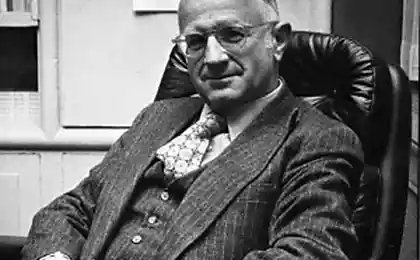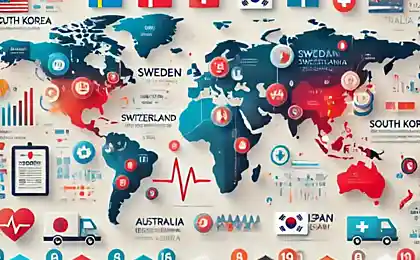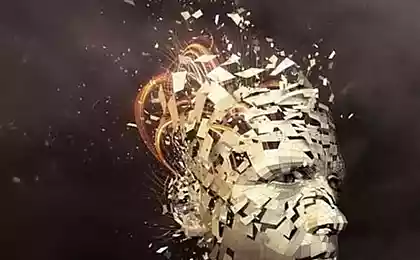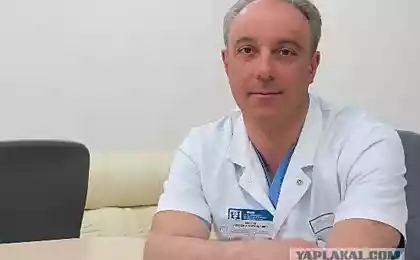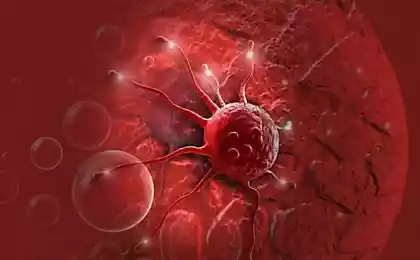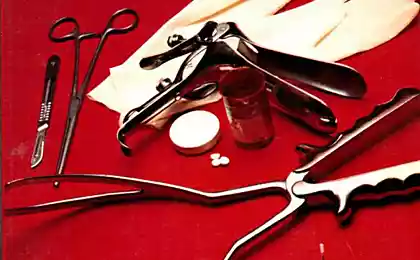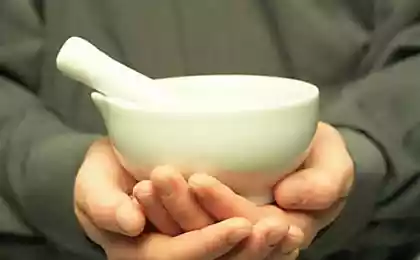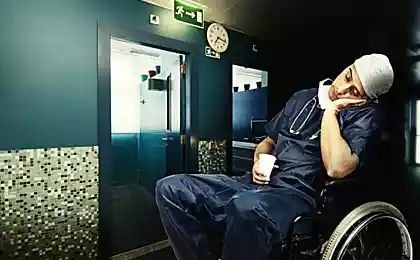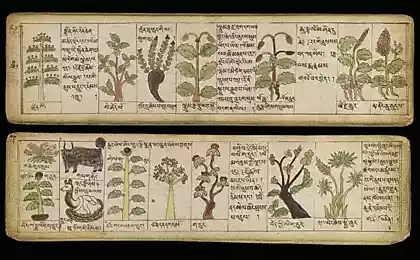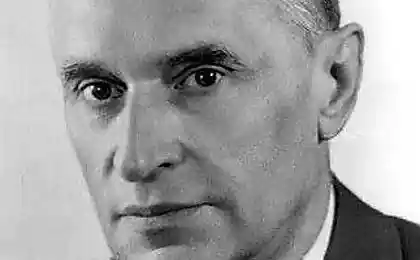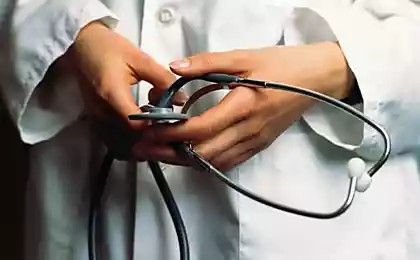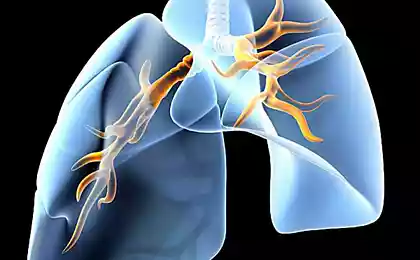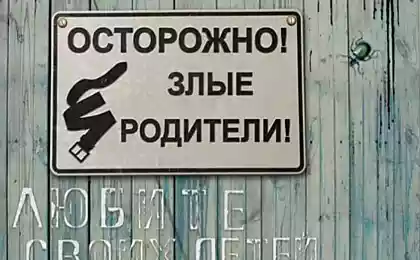538
Derrick Lonsdale, Why I left traditional medicine
Derrick Lonsdale (Derrick Lonsdale, MD), is a specialist in nutrition and preventive medicine.
He began his practice after graduating in 1948, University of London as a family doctor.
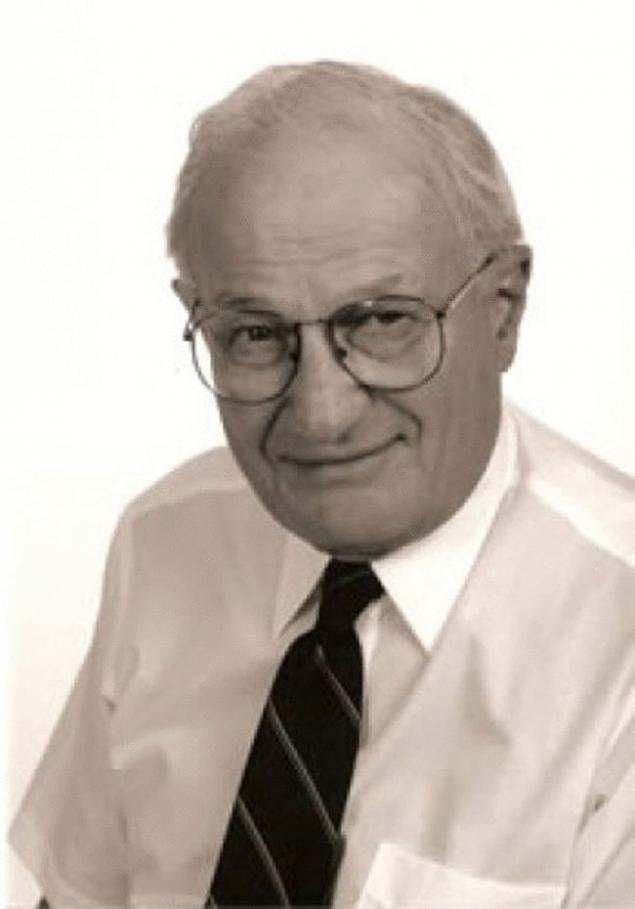
After serving as a medic in the Canadian air force, specialized as a pediatrician and worked as a staff officer at the Cleveland Clinic and was head of the Section of Biochemical Genetics.
Since 1982 engaged in medical nutrition in Preventive medicine Group of Cleveland. He is also editor of the Journal of Advancement in Medicine.
In 1994 Derrick Lonsdale published the book "Why I Left Orthodox Medicine: Healing for the 21 - st Century" ("Why I left traditional medicine: Rescue for the 21st century"), excerpts from his prefaces which are available to readers.
Why I left traditional medicine
Hippocrates, the recognized father of modern medicine, in fact was very far from our current approaches. The basics of his treatment was rest and diet. One of the most important principles of Hippocrates it was a simple statement:
"Thou shall do no harm" – "First, do no harm" which means that whatever the doctor did for the patient, it should never hurt. This statement is the recognition of the possibility of a failed approach to the patient, but failure should not worsen his condition.
This principle is so obvious that needs no justification, but it was lost in modern medicine. Hippocrates said "Let your medicine be your food and your food your medicine". The modern era is almost completely lost and this wisdom. It is necessary to analyze why it happened.
The real problem today is the accumulation of collective knowledge in a single form.
This is due to the huge amount of published literature and the impossibility for any person to cover even a small part of it. Therefore, we develop our concepts in small groups and very flexible, imbued with the confidence that our own idea is the only right one.
It's a painful repetition of the story of the blind men and the elephant. A group of blind people asked to describe an elephant. One described it as "a long tube" and "how a flat piece of material", etc. Each of them, describing the part of the body of the animal to which it was prisosalsya, was sure that he accurately describes the elephant and was convinced that everyone else is fundamentally wrong.
However, the inability to perceive the overall picture has generally been the cause of their common mistakes.
This universal property of humanity creates a General inability to see the bigger picture as a whole. Therefore, it is necessary to perform the development of our concept of "blind man." That is, we must look for the mechanisms that led to the formation currently available about the views of medical science called allopathy.
Any plan for the development of medical thought did not exist until relatively recently, when it was discovered the role of microorganisms in the development of many diseases.
Allopathy is a medical method that considers the basis of the disease in the body's response to infection and inflammation. It would be natural to find a way to stimulate inflammation as a protective response. However, the doctors decided not to do it. The concept of the destruction of the enemy – infection — became dominant in their collective thoughts. All efforts are directed at finding ways and means of destroying the germs that caused the disease.
No one will dispute the fact that the discovery of penicillin was an outstanding event in the history of medicine. He gave into the hands of doctors a practical approach to infections, providing acceptable security. But, as often happens, the discovery of penicillin was, unfortunately, a downside – it strengthened the concept of "destruction of the enemy." A huge amount of research has been devoted to the search for substances having the same as penicillin effect, so there was a lot of antibiotics. However, some of them turned out to be very toxic to our own cells.
In fact, the idea of the antibiotics to such an extent openly supported by the medical idea that doctors no longer see a lot of interrelated factors. This is akin to the mistake we made in agriculture, trying to find ways and means to kill the harmful insects. Anyone, including farmers, now knows that this approach has created such environmental impacts, which threaten our very existence. Insects become resistant to insecticides (toxins designed to kill insects, M. E.) and reproduce resistant offspring. As soon as the chemist creates a new insecticide, an insect population becomes resistant to its deadly attacks. We now have thousands of chemicals and entire generation of insects resistant to them. However, ironically, our cells are not adapted to these chemicals and our bodies are sensitive to their effects. The water we drink, and our food is intensively polluted by them. No one is able to determine how much disease is directly connected with the use of these toxins.
The idea of "kill the enemy" was extended to the treatment of cancer: if the cancer cells to kill, then the disease will be cured. If we can kill cancer without killing its owner? We come back to the same problem was found when trying to find a means of killing microorganisms. Unfortunately, we have forgotten that our body has its own defense mechanism, but nobody thought about finding means improve or support it. In fact, the treatment often worsens the situation to such an extent that violated the basic principle of the Hippocratic "do No harm".
We made a serious mistake – we became arrogant, believing that thanks to pharmacology, medicine will flourish at all times. Educate physicians and patients are taught to take modern medicine as bright and fantastic, capable of performing such miracles of healing, which previously could not even dream of. We are so duped that sometimes the doctor does not understand that his treatment worsens the patient's condition. The doctor, excited used intensive therapy (terminology, praising the active participation of the physician as healer), watching clinical deterioration of the patient, says to himself: "What a devastating disease. Even using potent drugs in my possession, I can't keep up with him. Should I use another pharmaceutical drug".
He had been deceived. He forgot that he was not a healer, a servant of the machine, which is fully capable to heal itself, and he must obey and not be aggressive. But in the process of learning the doctor constantly told that he leads a detachment of miraculous pills, which should solve all clinical problems. It is difficult to see, and it is a trouble that each drug modifies the clinical picture and interfere with the natural course of the disease.
As a result, clinical observation has lost its value for modern medicine. The diagnosis is made based on the presence of marked structural changes in the body, and the patient survey aimed to detect them. If such surveys do not find them, the disease belongs to the category of "psychosomatic diseases". The mind of the patient to penetrate the conclusion, "the doctor said that this is all in my head." There is nothing surprising in the fact that this classification of the disease is the patient's anger, since he is convinced that the doctor believes him to be a fraud.
Unfortunately, this may often be true, because the doctor is convinced that the physical symptoms are something of a psychological cover for the patient.
However, if the model that we created is incorrect, then we must replace it with the best. In my book I show why preventative medicine, which uses food as the basis of his therapy should be the medicine of the 21st century. Although this is a relatively simple model, it is based on the well known and understood scientific data. The problem is that the results obtained in laboratories, to implement in the clinic. The implementation process may be delayed for many years if the doctors do not want and will not be qualified to assess the patient's needs not only from the point of view of disease, but also biochemistry and physiology.
I tried to trace my own development as a doctor. I was educated in a very traditional and strict atmosphere in the well-known London hospital, where I was taught to work. Progressing from the practice of a family doctor before a large American specialized clinic, I was deeply involved in the exciting complex world of biochemistry. It is in the process of penetration in the world, I began to see the body as a biochemical machine which can repair itself if you provide for their nutritional needs in accordance with their needs. I found that this principle applies to all diseases. Thousands of different ways I've tested your model and I hope I have created a program that gives you the opportunity this term to become obvious.
Derrick Lonsdale, M. D.
Translations and summaries by M. Ehrman
P. S. And remember, only by changing their consumption — together we change the world! ©
Source: www.childneurologyinfo.com/health-text-accuse2.php
He began his practice after graduating in 1948, University of London as a family doctor.

After serving as a medic in the Canadian air force, specialized as a pediatrician and worked as a staff officer at the Cleveland Clinic and was head of the Section of Biochemical Genetics.
Since 1982 engaged in medical nutrition in Preventive medicine Group of Cleveland. He is also editor of the Journal of Advancement in Medicine.
In 1994 Derrick Lonsdale published the book "Why I Left Orthodox Medicine: Healing for the 21 - st Century" ("Why I left traditional medicine: Rescue for the 21st century"), excerpts from his prefaces which are available to readers.
Why I left traditional medicine
Hippocrates, the recognized father of modern medicine, in fact was very far from our current approaches. The basics of his treatment was rest and diet. One of the most important principles of Hippocrates it was a simple statement:
"Thou shall do no harm" – "First, do no harm" which means that whatever the doctor did for the patient, it should never hurt. This statement is the recognition of the possibility of a failed approach to the patient, but failure should not worsen his condition.
This principle is so obvious that needs no justification, but it was lost in modern medicine. Hippocrates said "Let your medicine be your food and your food your medicine". The modern era is almost completely lost and this wisdom. It is necessary to analyze why it happened.
The real problem today is the accumulation of collective knowledge in a single form.
This is due to the huge amount of published literature and the impossibility for any person to cover even a small part of it. Therefore, we develop our concepts in small groups and very flexible, imbued with the confidence that our own idea is the only right one.
It's a painful repetition of the story of the blind men and the elephant. A group of blind people asked to describe an elephant. One described it as "a long tube" and "how a flat piece of material", etc. Each of them, describing the part of the body of the animal to which it was prisosalsya, was sure that he accurately describes the elephant and was convinced that everyone else is fundamentally wrong.
However, the inability to perceive the overall picture has generally been the cause of their common mistakes.
This universal property of humanity creates a General inability to see the bigger picture as a whole. Therefore, it is necessary to perform the development of our concept of "blind man." That is, we must look for the mechanisms that led to the formation currently available about the views of medical science called allopathy.
Any plan for the development of medical thought did not exist until relatively recently, when it was discovered the role of microorganisms in the development of many diseases.
Allopathy is a medical method that considers the basis of the disease in the body's response to infection and inflammation. It would be natural to find a way to stimulate inflammation as a protective response. However, the doctors decided not to do it. The concept of the destruction of the enemy – infection — became dominant in their collective thoughts. All efforts are directed at finding ways and means of destroying the germs that caused the disease.
No one will dispute the fact that the discovery of penicillin was an outstanding event in the history of medicine. He gave into the hands of doctors a practical approach to infections, providing acceptable security. But, as often happens, the discovery of penicillin was, unfortunately, a downside – it strengthened the concept of "destruction of the enemy." A huge amount of research has been devoted to the search for substances having the same as penicillin effect, so there was a lot of antibiotics. However, some of them turned out to be very toxic to our own cells.
In fact, the idea of the antibiotics to such an extent openly supported by the medical idea that doctors no longer see a lot of interrelated factors. This is akin to the mistake we made in agriculture, trying to find ways and means to kill the harmful insects. Anyone, including farmers, now knows that this approach has created such environmental impacts, which threaten our very existence. Insects become resistant to insecticides (toxins designed to kill insects, M. E.) and reproduce resistant offspring. As soon as the chemist creates a new insecticide, an insect population becomes resistant to its deadly attacks. We now have thousands of chemicals and entire generation of insects resistant to them. However, ironically, our cells are not adapted to these chemicals and our bodies are sensitive to their effects. The water we drink, and our food is intensively polluted by them. No one is able to determine how much disease is directly connected with the use of these toxins.
The idea of "kill the enemy" was extended to the treatment of cancer: if the cancer cells to kill, then the disease will be cured. If we can kill cancer without killing its owner? We come back to the same problem was found when trying to find a means of killing microorganisms. Unfortunately, we have forgotten that our body has its own defense mechanism, but nobody thought about finding means improve or support it. In fact, the treatment often worsens the situation to such an extent that violated the basic principle of the Hippocratic "do No harm".
We made a serious mistake – we became arrogant, believing that thanks to pharmacology, medicine will flourish at all times. Educate physicians and patients are taught to take modern medicine as bright and fantastic, capable of performing such miracles of healing, which previously could not even dream of. We are so duped that sometimes the doctor does not understand that his treatment worsens the patient's condition. The doctor, excited used intensive therapy (terminology, praising the active participation of the physician as healer), watching clinical deterioration of the patient, says to himself: "What a devastating disease. Even using potent drugs in my possession, I can't keep up with him. Should I use another pharmaceutical drug".
He had been deceived. He forgot that he was not a healer, a servant of the machine, which is fully capable to heal itself, and he must obey and not be aggressive. But in the process of learning the doctor constantly told that he leads a detachment of miraculous pills, which should solve all clinical problems. It is difficult to see, and it is a trouble that each drug modifies the clinical picture and interfere with the natural course of the disease.
As a result, clinical observation has lost its value for modern medicine. The diagnosis is made based on the presence of marked structural changes in the body, and the patient survey aimed to detect them. If such surveys do not find them, the disease belongs to the category of "psychosomatic diseases". The mind of the patient to penetrate the conclusion, "the doctor said that this is all in my head." There is nothing surprising in the fact that this classification of the disease is the patient's anger, since he is convinced that the doctor believes him to be a fraud.
Unfortunately, this may often be true, because the doctor is convinced that the physical symptoms are something of a psychological cover for the patient.
However, if the model that we created is incorrect, then we must replace it with the best. In my book I show why preventative medicine, which uses food as the basis of his therapy should be the medicine of the 21st century. Although this is a relatively simple model, it is based on the well known and understood scientific data. The problem is that the results obtained in laboratories, to implement in the clinic. The implementation process may be delayed for many years if the doctors do not want and will not be qualified to assess the patient's needs not only from the point of view of disease, but also biochemistry and physiology.
I tried to trace my own development as a doctor. I was educated in a very traditional and strict atmosphere in the well-known London hospital, where I was taught to work. Progressing from the practice of a family doctor before a large American specialized clinic, I was deeply involved in the exciting complex world of biochemistry. It is in the process of penetration in the world, I began to see the body as a biochemical machine which can repair itself if you provide for their nutritional needs in accordance with their needs. I found that this principle applies to all diseases. Thousands of different ways I've tested your model and I hope I have created a program that gives you the opportunity this term to become obvious.
Derrick Lonsdale, M. D.
Translations and summaries by M. Ehrman
P. S. And remember, only by changing their consumption — together we change the world! ©
Source: www.childneurologyinfo.com/health-text-accuse2.php
